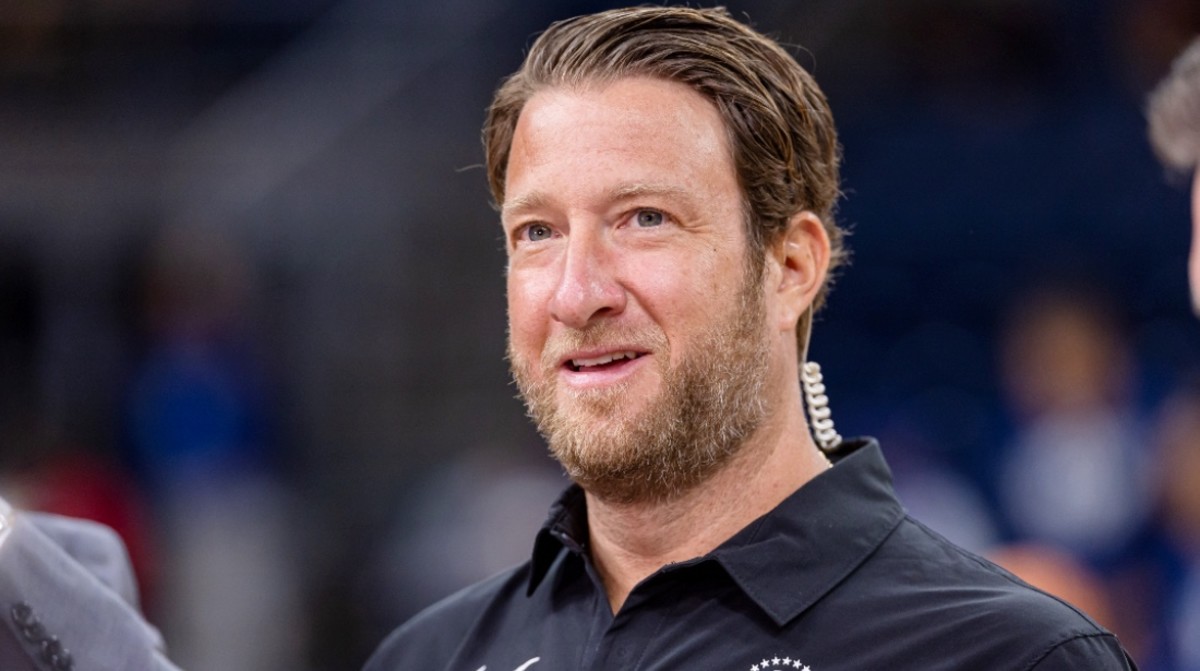Dave Portnoy Speaks Out: The Unfortunate Role of Barstool Sports in Spreading the Ole Miss Rumor
Table of Contents
- Dave Portnoy insists Barstool Sports isn’t being run by ‘woke overlords’
- After Eating Over 500 Pizzas, Dave Portnoy's Most Popular Review Is ...
- Barstool Sports' Dave Portnoy rips New York Times for gambling 'hit piece'
- Dave - GardaGillian
- “They wouldn’t work for you”: Dave Portnoy gets roasted online after ...
- Dave Portnoy Biography: The Man Behind Barstool Sports
- “They wouldn’t work for you”: Dave Portnoy gets roasted online after ...
- Dave Portnoy가 자신의 팟캐스트가 어떻게 팬의 생명을 구했는지에 대한 놀라운 이야기를 공유합니다. - 시사복지
- Dave Portnoy Dodges A Bullet | Barstool Sports
- Dave Portnoy Scores Massive Win on UConn March Madness Bet - Men's Journal

Renowned sports media personality and founder of Barstool Sports, Dave Portnoy, has recently expressed his regret over the platform's involvement in perpetuating a "vicious rumor" surrounding the University of Mississippi, commonly known as Ole Miss. This incident has sparked a significant conversation about the responsibilities that come with social media influence and the importance of verifying information before sharing it with the public.


The Origins of the Rumor

The rumor in question began circulating on social media and was eventually picked up by Barstool Sports, one of the most popular sports media outlets. The platform, known for its engaging and often provocative content, inadvertently contributed to the spread of the unfounded claim, which caused significant distress and harm to the individuals and the institution involved. The specifics of the rumor are less important than the impact it had and the lessons that can be learned from how it was handled.


Dave Portnoy's Response

In a statement, Dave Portnoy acknowledged the mistake and apologized for Barstool Sports' role in spreading the rumor. He emphasized the importance of responsible reporting and the need for media outlets to verify information before publishing. Portnoy's response was widely praised for its sincerity and the prompt action taken to rectify the situation. This move not only reflects positively on Portnoy's character but also underscores Barstool Sports' commitment to ethical journalism and respect for its audience.

The Broader Implications
The incident highlights the challenges and pitfalls of the digital age, where information can spread at an unprecedented rate. Social media platforms, bloggers, and online media outlets have the power to influence public opinion and shape narratives. However, this power comes with the responsibility to ensure that the information being shared is accurate and not harmful. The spread of false information can have serious consequences, ranging from damaging reputations to inciting violence.

Lessons Learned
Dave Portnoy and Barstool Sports' experience serves as a reminder of the importance of fact-checking and the potential consequences of spreading unverified information. It also underscores the need for media literacy among consumers of online content. In an era where anyone can be a publisher, it's crucial for readers and viewers to critically evaluate the information they consume and consider the sources before accepting it as true.

Moving Forward
As the online media landscape continues to evolve, incidents like these will inevitably occur. However, it's how we respond to them that matters. Dave Portnoy's apology and commitment to doing better in the future are steps in the right direction. They demonstrate a willingness to learn from mistakes and a dedication to upholding the principles of responsible journalism, even in the fast-paced and often provocative world of sports media.
In conclusion, the role of Barstool Sports in spreading the Ole Miss rumor, and Dave Portnoy's subsequent response, offer valuable lessons for both media outlets and consumers of online content. As we navigate the complex and ever-changing digital world, it's essential to prioritize accuracy, responsibility, and respect for the truth. Only through such efforts can we foster a healthier and more trustworthy online environment.
For more information on this topic and to stay updated on the latest developments, follow reputable news sources and consider the credibility of the information you find online. Remember, in the digital age, knowledge is power, and verifying information is key to harnessing that power responsibly.